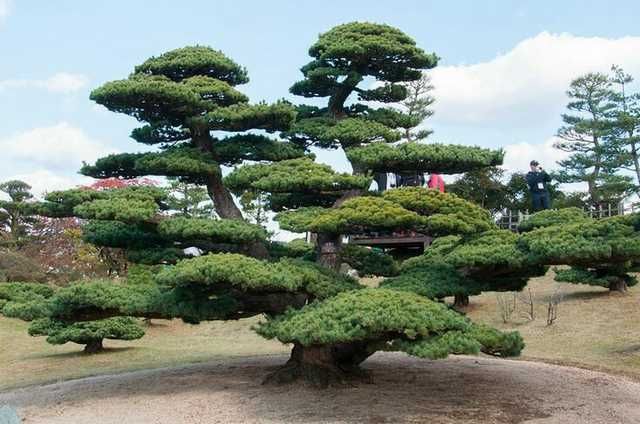Written by Nikki Tilley and published on https://www.gardeningknowhow.com/.
Don’t you fall for the scenic view of a lawn? The green, nourished lawn area appears more appealing to us than tall buildings and hectic streets. The amazing natural scenic beauty that brings a big smile on your face and gives a stunning appearance to a restaurant is a great contribution of Trees. The trees refresh our lives; nurture the child inside us.
When talking about providing your lawn area for commercial purposes like official meets, parties, etc., the trees are unbelievable assets.
Trees enhance the look and feel of the place. Not just the visual appeal, they also offer fresh air and cool shade that make the atmosphere more pleasing. The aroma of the flowers makes others fall for the area. When accompanied with Mountain View or flowing Waterfall nearby, the place becomes a paradise on Earth.
Trees That Please The Landscape
Trees define the landscape, creating the bones of your garden. Choose the wrong one and the appearance of your home may be diminished. With so many different types to choose from, how do you pick a tree that will beautify your home? Whether you’re looking for shade, privacy, or something ornamental, you can find just the right tree to fit your needs.
Choosing a Tree By Its Mature Size
Most people fail to consider the mature height and appearance of a tree when they are selecting one for their landscape. Trees are generally sold in containers, much smaller than their full-grown height. The tree’s shape will also say a lot about whether it is suitable for the area in which you want to place it. Sure, the tree might look great while it’s sitting there in the container, but once it’s planted and grown to the point of concealing your existence, or the roots have become entwined in your septic lines, how great is it then?
Trees that are too large for the landscape will not look appealing. Then again, choose one that is way too small and you may as well be choosing a shrub instead, leaving the landscape looking barren. Any tree placed within a landscape should complement its surroundings and remain within scale to your home as well the rest of the landscape.
Deciduous Trees or Evergreen Trees?
When selecting trees, there are generally two types to choose from: deciduous and evergreen.
Deciduous trees lose their leaves in the fall after putting on a spectacular color display. These types of trees are most popular due to their flowering abilities, foliage color, and interesting shapes. Common deciduous trees include large types, like oaks and maples, or smaller varieties, such as flowering dogwoods and crabapples.
Evergreens do not lose their leaves and remain green year round. These include conifers such as pine, spruce, and cedar trees. Evergreens can add drama to landscapes, especially in winter where they make beautiful backdrops amid a blanket of white snow.
Think About and Research Your Landscape Tree Needs
The best way to ensure the right tree for your landscape is to perform some research beforehand. There are numerous resources available, from books to online resources. Also, take a walk around your property, noting any existing trees and in what areas of the landscape you would like to add more. Determine your overall purpose and the tree’s function.
Perhaps you are looking for more shade. Will the tree be chosen merely for its flowering in spring or its fall color? Do you want to add some privacy to your home? Consider its overall size and shape before making any decisions, especially when you’re ready to purchase one. This is where all of your research will pay off; saving you both time and money later on down the road.
With shade trees, it is important to consider height since they are usually located nearest the home. This means that safety issues need to be addressed. Generally, the oak tree is one of the safest choices you can make. These trees are extremely sturdy. Red maples, best known for their amazing fall foliage, also make fast-growing shade trees and suitable landscaping choices. Sycamore trees are fast growing and ideal as shade trees as well. Furthermore, these trees provide additional interest with impressive, flaking bark. Elm trees with their towering, yet, graceful canopies are excellent choices too.
Not everyone, however, requires something large. Maybe you live on a small lot or perhaps you are simply looking for something to shade your patio or deck. If this is the case, choosing a smaller-sized tree is most fitting provided you select one having large-spreading canopies, such as a dogwood.
Consider Flowering Trees
Dogwood trees offer striking blooms during spring, interesting branching patterns during summer and beautiful foliage during fall. Other good choices for spring flowering include ornamental fruit trees; the fruit is merely a bonus. My favorites are Bradford pears and apple trees. Flowering landscape trees can be the main attraction of the landscape during the spring season. Weeping cherry trees are spectacular blooming specimens for the spring landscape as are magnolias.
However, did you know that some trees bloom in summer as well? For example, crepe myrtles provide stunning flower color and have a long blooming period, lasting from mid-summer to fall. Maybe it’s fall color you’re looking for. Good choices here include maples, ash, poplars, and some oak varieties. Japanese maples display exceptional foliage color not only in autumn but during summer as well.
An interesting tree for winter enjoyment include birch trees. Birches have interesting branching patterns as well as unusual bark.
Do You Need Privacy?
Privacy is sometimes an important factor when selecting trees for the landscape. Many evergreens are used for this purpose, as they remain full and green throughout the year. Arborvitae trees are attractive year round. These evergreen trees are commonly used for creating screens or privacy fences. Blue spruce not only looks lovely in winter as a specimen plant, but planting more than one will also create appealing windbreaks and additional privacy. Evergreen trees always deserve a welcoming spot in the landscape. Their foliage brightens winter scenes, offering an opportunity to distance ourselves from the gloominess of dark winter days.
Many evergreen trees can actually be pruned down to resemble shrubs and used as foundation plantings to obscure unsightly areas or provide year-round interest. Good considerations here include evergreen yew and holly. Either of these can be grouped to form a hedge, or used as a specimen plant by itself. Hollies provide an additional bonus. The foliage of these evergreens can be used for winter decorations during the holidays, and their lovely red berries attract birds as well.
No matter where you live, there’s a tree for you. Provided you’ve done your research and chosen trees wisely, your landscape will flourish with beauty year round. Nothing makes for a more stunning view than trees that please the landscape.
Original post here https://www.gardeningknowhow.com/ornamental/trees/tgen/trees-that-please-the-landscape.htm.


